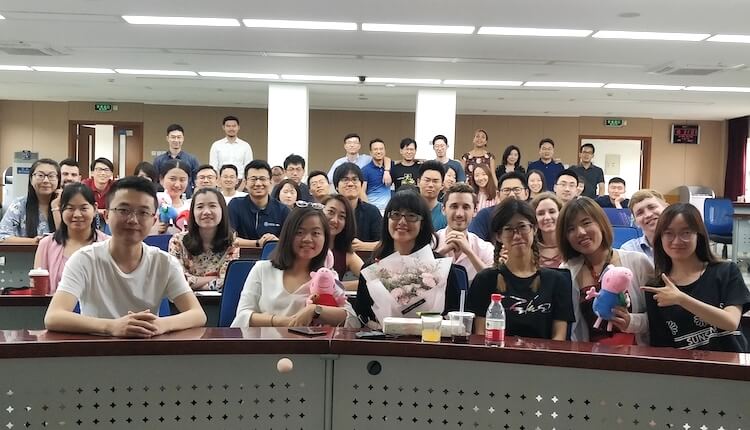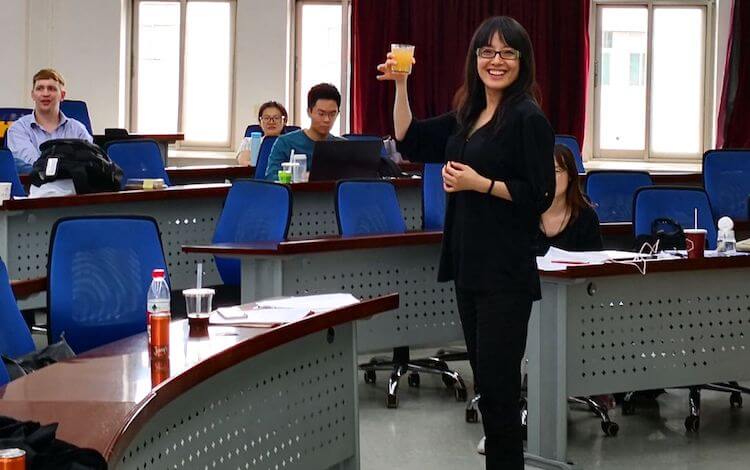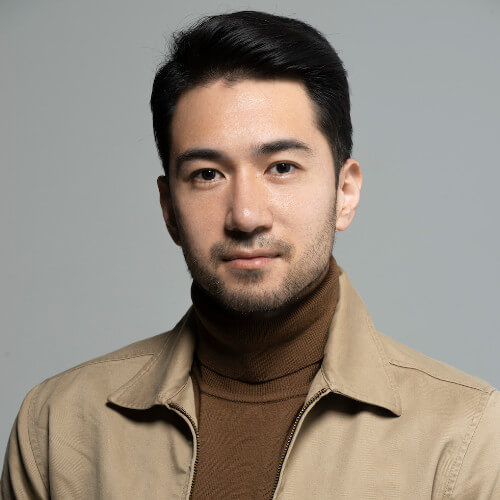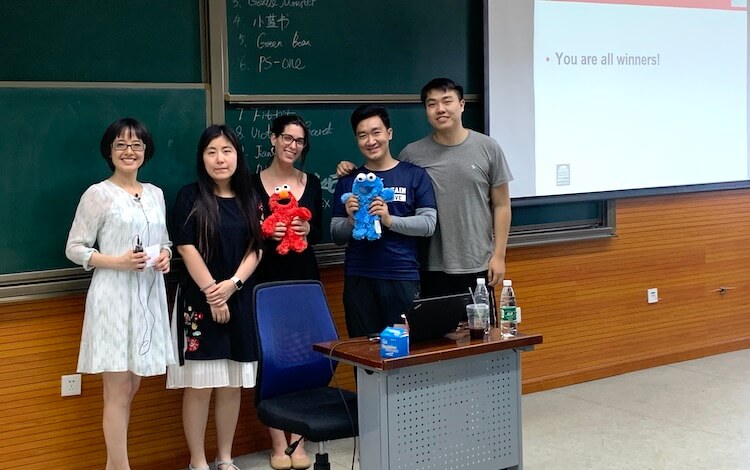What are the biggest marketing trends in 2020? How will COVID-19 change marketing? How is marketing in China different?
These questions and more are answered on the cutting-edge Marketing Management course at Tsinghua University School of Economics and Management (SEM), a one-week marketing masterclass for MBA students at China’s top university.
The course, explains professor Juanjuan Zhang, provides students with a roadmap for marketing anything—a product, service, company, or even themselves – which they’ll be able to use whatever career path they choose to pursue.
Students start off tackling core marketing frameworks before delving into each component of marketing today—branding, promotion, product design, consumer research—working through a series of case studies on companies like BMW, Swatch, and Sony.
Teams of five students then use the techniques they’ve learned to develop and present their own marketing plan. Past students have created marketing plans for companies entering China; new student startups; and have even rebranded popular alcohol brands for new markets.
Throughout the course, Juanjuan, a Marketing Science Institute Scholar—a title awarded to the world’s best marketing academics—keeps students up to date on the latest marketing trends and gives first-hand insight into how marketing is done in China.

MBA students in Tsinghua's Marketing Management course
Marketing & COVID-19
Professor Juanjuan Zhang’s research covers industries including consumer goods, social media, and healthcare, and functional areas like product management, pricing, and sales. Juanjuan is a full-time professor at MIT Sloan and has won MIT’s highest teaching award, the Jamieson Prize.
The Tsinghua MBA is offered in collaboration with MIT Sloan and through that connection Juanjan teaches marketing to first-year Tsinghua MBA students in June each year; the last course before the summer break. The course content is similar to the three-month core MBA marketing course at MIT, but packed into a whole week.
This year, with COVID-19, things are a little different. Juanjuan will teach students online over eight days with students working together on cases and team projects in virtual breakout rooms. The coronavirus pandemic is also impacting how companies are marketing themselves and their products, Juanjuan explains.
“We’ve been talking about it for decades, but COVID-19 will accelerate digital transformation further,” she says. “Companies have been reluctant to change because of cost, but all of a sudden it’s not about cost-benefit anymore; it’s about survival. Companies need to go online and reach out to people virtually.”
Juanjuan says she’s seeing more companies using Chinese video sharing platform TikTok and engaging with “grass-roots influencers” rather than celebrities. “We’re not talking about Justin Bieber here; these are otherwise unknown video bloggers reviewing products online!”
What’s not changing is the importance of brand, and branding is a key focus on Tsinghua’s Marketing Management course. Students are required to wear nametags in class—it’s their opportunity to start building their personal brand, Juanjuan says.

Juanjuan conducts taste tests with Tsinghua MBA students to illustrate the importance of branding
In the popular branding lecture, Juanjuan talks about the difference between the psychological associations people have with brands and the underlying commodity. She uses the example of Coca-Cola, which through brand association has elevated itself to far more than a carbonated soft drink.
So much so, she says, that people think they can tell the difference between Pepsi and Coke. Juanjuan runs a blind tasting test during the course, but only around half of students guess correctly.
“They are confident they can tell the difference,” Juanjuan explains. “Culturally and psychologically they can—they think of the font, color, and design of the Coke bottle—but in terms of taste there’s not much difference.” The test emphasizes how branding can make products that are essentially similar stand out to consumers.
Henny Guerra (pictured), an American student from the Tsinghua MBA class of 2020, remembers the branding lecture fondly.
“The class was hands-down my favorite at Tsinghua,” he says. “Professor Zhang’s enthusiasm for the subject matter was infectious, and her command of course concepts and ability to relate them are unmatched.
“She has that rare ability that only the best communicators possess, where it seems that they are imparting the information for the first time and are sharing in the revelations with you in real time!”
Marketing in China
Throughout the course, Juanjuan explains how marketing in China is different to elsewhere. A lot of it comes down to population density, with Chinese cities among the most populated in the world.
“You therefore have a lot of crowd-based, community-based marketing; a lot of word of mouth marketing and people buying things because of recommendations from friends,” she says. “In China, people don’t need to visit websites anymore!”
Internet influencer marketing is a big deal in China—and now a formal job title—and Chinese brands are leading the way when it comes to innovations in digital and social media marketing.
Top Western companies like Amazon and Google are looking to replicate what Chinese firms are doing around shoppable content; a type of marketing content—like a video with a buy-now link—which provides a direct purchasing opportunity for the consumer.
Many Chinese consumers may feel comfortable sharing their data online, Juanjuan admits. Still, companies can be proactive about privacy protection. With data breaches and scandals often in the news, a focus on ethics is woven throughout the Tsinghua marketing course content.
For companies—and MBA students—looking to enter the Chinese market, understanding and adapting to these cultural differences is key. LinkedIn is doing well in China, Juanjuan says. Part of its recipe for success is its adoption of a meaningful Chinese brand name, Lingying; not a simple phonetic translation but a clever phonosemantic one which conveys leadership. “So, in effect, step one of localization is already complete,” she says.

Tsinghua's Marketing Management course culminates in a group project where teams come up with their own marketing plans
Marketing Management | MBA Student Reviews
Juanjuan’s holistic approach to on the Marketing Management course is popular among Tsinghua MBA students.

Xin Yi Aw Yong (pictured), from Singapore, says she learned the importance of segmentation, targeting, and positioning when launching a new product and picked up tools which helped her during her MBA internship at ByteDance, the company behind TikTok, where she worked on go-to-market strategies for new products.
For Marco Matti (pictured below), now working for Unilever, it was the branding lecture that really stood out. “It was fascinating to learn that a brand is an intangible asset, a set of associations that live in our minds, and a powerful force that profoundly impacts our tangible experiences like taste and touch,” he says.
Henny, a project manager, says he continues to use his learnings from the course in his day-to-day work. “The course reignited my passion for learning. It will give you a solid understanding of the fundamentals of marketing theory, including the 3 Cs, the 4 Ps, segmentation, targeting, positioning, and branding!”
For Juanjuan, herself a former Tsinghua, it’s the course’s immersive nature that makes it stand out. “The whole world is marketing for one week,” she says. “Students apply each session into practice immediately with no time to forget!”
After the course, students can choose to specialize in a particular area of marketing in their second MBA year. “Even if they don’t pursue a career in marketing,” Juanjuan says, “they’ll always have a marketing playbook to carry along with them.”